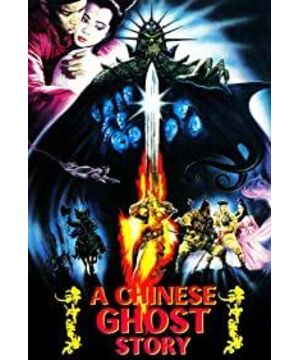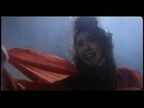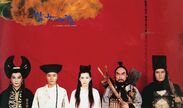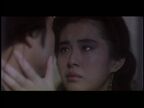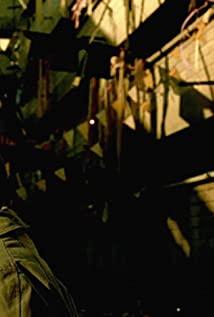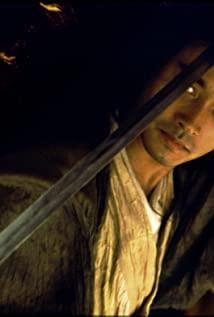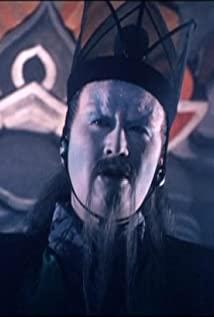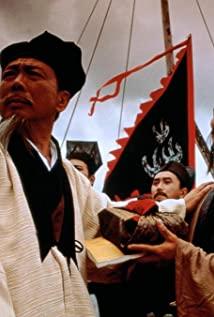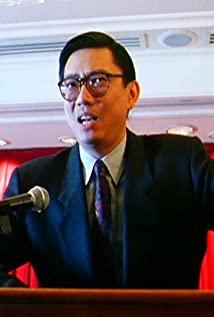1. Foreword The country will prosper, there must be Zhenxiang; the country will die, there must be evildoers. -"Book of Rites·The Doctrine of the Mean" In a peaceful world, humans and ghosts are separated; in today's world, humans and ghosts are mixed. —— "Yu Shiming Yan, Yang Siwen, Yanshan Meets Old People" Wang Dewei wrote in "Ten Lectures on Modern Chinese Novels: The Return of the Soul": "It is rare to see the era of'the world of peace, the separation of man and ghost', but it is'human “Ghosts are mixed together” has become the norm. Ghosts and demons flow through the world, reminding us that the fission and trauma of history are always infinite. Crossing the boundaries of the physical body and time and space, the disappearing memories and the broken human relations return, just like ghosts and charms. The faint return of ghosts. Ghosts leave ambiguous traces on the edge of knowledge of death and life, reality and illusion, "unbelievable" and "belief and sign." Because of this, traditional ghost stories are not limited to witnessing superstition and fiction. More directly refers to the characteristics of the drifting and evolving realism concepts in classical narratives." The chaotic world represents the total collapse of social order, the order is chaotic, the unspeakable surreal ghost force spreads everywhere, the human and the ghost are mixed, and the people are not living. This is a typical Chinese myth. The feedback of the perception way of thinking "the same structure of nature and human being". Ghosts and monsters have always been another mirror image of people. From "The Legend of Slashing Ghosts" (1688) to "He Dian"/"Ghost Talk Lianpianlu" (1820), the protagonist's story goes from Zhong Kui in the world to the daily life of living ghosts in the world of ghosts. It is based on the imagination of ghosts and ghosts to tell the world's various states.
Pearl Buck once pointed out that one of the formal characteristics of Chinese novels is that they are inseparable from folklore. Its form is inherited and developed by folk artists in different periods. Indeed, there are very few ancient scholars like Lanling Xiaoxiaosheng and Cao Xueqin who created independently, and traditional Chinese literature has a fairly solid inheritance. And this inheritance has not been destroyed to this day, but has been deconstructed again by the film, in other words, the film is an extension of literature in another sense. I use Tsui Hark’s "A Chinese Ghost Story" as a carrier, and try to describe the following three aspects: 1. From Li Hanxiang to Tsui Hark-the changes of a Chinese Ghost Story 2. A Chinese Ghost Story and the Golden Swallow 3. Xiaoqian's warning/contract-no turning back 4. Yan Chixia and Hong Kong
2. From Li Hanxiang to Xu Hark-the change of A Chinese Ghost Story In 1960, Li Hanxiang and Hu Jinquan chose "Liao Zhai·Nie Xiaoqian" to shoot the Shaw Brothers movie "A Chinese Ghost Story". Twenty-seven years later, Tsui Hark and Cheng Xiaodong shot again, but the two works are quite different. 1. The location is suitable to go to Jinhua, to Beiguo, and unload Lanruo. The pagoda in the nave is magnificent, but there is no one in Penghao, and it seems to be impossible. -"Liao Zhai·Nie Xiaoqian" Li Hanxiang's version did not explain the county seat, but gave the temple name: Jinhua Ancient Temple. The Xu Ke version named the county as Guobei County, and the temple was Lanruo Temple. (Bei Guo, refers to the north of the city. Lan Ruo, the Sanskrit name Aranya, refers to the temple, the Xu Hark version of the name is wrong.) 2. Background/Ning Caichen Li Hanxiang’s story is set in the late Ming Dynasty, which is a product of the typical scholar-official spirit of saving the world. (This is quite common in Hong Kong movies in the 1960s, such as "Dong Xiaowan" (1963) Liu Ru scolds Qian Qianyi, Dong Xiaowan scolds Hong Chengchou and Ruan Dacheng) The background of Tsui Hark’s story is blurred, and the troubled times only provide a stage for commercial gag. It doesn't have much meaning.
"There is a kind, there is a kind to fight the soldiers."-Li Hanxiang, "A Chinese Ghost Story" (bystander) "The song of a strong man is like a Hongzhong, and the chaos and thieves are discouraged. —Li Hanxiang, "A Chinese Ghost Story" (Ning Caichen) "Fang is in chaos today, and the country is in the midst of employing people. With the martial arts of a strong man...the Central Plains were all seized by the Qing soldiers. They raped, killed, looted, and committed no evil. Hong Chengchou and Wu Sangui helped Zhou to be abused. On the 10th in Yangzhou, the third massacre in Jiading was said to have killed more than 1.9 million of our innocent people. The rise and fall of the country is the responsibility of everyone. But my mother is too old and needs someone to support him. Therefore, he bears humiliation and steals his life. It really lies in a guilty conscience. The territory of this dynasty is Guangdong, Guangxi, Hunan, Jiangxi, Sichuan, and Yungui. The regular army has several million, plus the volunteers led by the green forest heroes everywhere, no less than tens of millions. What can’t be done? And Taiwan’s Zheng Chenggong ruled across the sea, and there were dangers to guard.” (Ning Caichen) “The country is ruined and the family is destroyed, but the soldiers are defeated. The soul is called and the Xiangjiang has tears, and the army has no strings.” ( Yan Chixia) Li Hanxiang's version of Ning Caichen is a product of the traditional world-saving spirit. He and Yan Chixia also became irresistible because of the ambitions of the family and the country. The attitude is completely different). On the other hand, Tsui Hark’s version of Ning Caichen is just a little character whose status has shifted downward. He did not depict the concept of nationality. He is more of the Hong Kong little character spirit inherited from Xu Guanwen’s comedy movies (specifically, it is to discourage Xia Hou and Yan Chixia). With "love"). The character is also reduced to gag. Yan Chixia said that he was “tender, with a breeze in two sleeves, embroidered with fists and legs, learning nothing but doing nothing.” He also quietly replied: “I am not as good as you said.” 3. Inscribed poem Shili Pinghu is full of green , Hosta secretly cherishes Huanian. If you teach Yugai to protect one another, you can only envy mandarin ducks but not immortals. ——Li Hanxiang "A Chinese Ghost Story"
Ten miles of Pinghu Lake is full of frost, and every inch of it is blue and sorrowful. Looking at each other in the moon shape, only the mandarin ducks do not envy the immortals. -Tsui Hark, "A Chinese Ghost Story"
4. Reaction after identity exposure "Although I am a ghost, I did not harm Mr.'s heart. There are odious people in the sun, and there are dear ghosts in the underworld. Today I came to save Mr. Mr." "I only heard about ghosts." Will harm people, I have never heard that ghosts can save people. Besides, what disaster do I have, should I help you to save?" "Three shifts tonight, grandma is going to hurt your life."-Li Hanxiang, "A Chinese Girl" "Ghost" (hard attitude) "Are you really a ghost?" "Yes." "You killed the people in the temple?" "I don't want to, I was forced to do this, Ning Caichen." "Don't come here, I'm not polite if you come here!" "Have you got a fall?" "Don't be afraid of me, I won't hurt you. Why don't you believe me? Think about whether I hurt you. You?" "Ghosts can harm people. You are a ghost. How do you tell me to believe you?" "You think ghosts are scary, but people are more scary. Sometimes, people are more cruel than ghosts. What? And because the grievances are not yet white, some ghosts can't reincarnate and become humans, so they are displaced. In fact, some ghosts are much kinder than people."-Tsui Hark's "A Chinese Ghost Story" (Attitude Relaxed) 5. Comparison of Characters' Costumes
6. Tsui Hark’s perceptions are recorded in the book "The Secret of Hong Kong Movies-Man and Han Feast-Tsui Hark". Tsui Hark said, "Reviving old traditions does not mean indulging in nostalgia, but connecting one's life with important traditions. "Throughout Tsui Hark's movies, he almost ignores history. He doesn't care whether Huang Feihong is a Northern or Southern school, nor is there no imperial examination in the Liangzhu era. What Tsui Hark presents is a traditional combination of complacency. Like Li Hanxiang's version of Xiaoqian, the guqin is played, but the Tsui Hark version is an electronic piano. Hu Jinquan once said: "If the plot is simple, the style display will be richer." (Similar to Wang Fuzhi's "Poetry without Dazhi") In this regard, Huang Zhan commented on Tsui Hark's movie: "Xu Hark is in the vision The aspect is very good, very rich, I can think of what other people can't think of. But I think it is too rich. Every time I watch his play, I have to use half of my buttocks to watch it at the beginning. It is very tiring until the end. Tsui Hark is keen on sensory stimulation, and can not be retracted, which makes his works extremely "excessive", and the climax is repeated, but the climax is not seen. ("The mountain desires to be high, and if it is exhausted, it is not high; the haze locks its waist, and it is high. The water desires to be far, but it is not far away; to cover off its pulse, it will reach it."-"Lin Quangao To · Landscape Training") 3. A Chinese Ghost Story and the Golden Swallow Golden Swallow is a follower of the Chinese Ghost Story, and the art design and martial arts instructor are the same team (Xi Zhongwen, Guo Zhui). The plot of the story is a combination of "A Chinese Ghost Story" and "Guaranteed Story: Snow Girl" and transformed into a contract story. Luo Zhiqiu could not disclose his experience in the Demon Realm, he would be killed after leaking, but after many years he violated the taboo and told the past. And this can also be seen as a continuation of Xiaoqian and Ning Caichen not allowed to look back. The corresponding relationship of the characters is: Old demon: Grandma-Black Mountain Grandma Male lead: Ning Caichen-Luo Zhiqiu Female lead: Xiao Qian-Xiaoxue Banshee: Xiao Qing-Xiaoshuang ↗ To the left Taoist: Yan Chixia →Fenghantian↘to the right
Four, Xiaoqian's warning/contract-no turning back
In Tsui Hark’s "A Chinese Ghost Story", when his grandmother besieged the house, Nie Xiaoqian managed to get Ning Caichen to leave and warned him to keep following the ribbon and never look back. This is very similar to Xiao Bailong admonishing Qianxun not to look back at the soup house. On the contrary, Qianxun did not look back, and then left the "different space" and returned to reality. Ning Caichen turned his head, and then the guiding ribbon disappeared and fell into the trap of grandma. The path under Qianxun's and Ning Caichen's feet is a single channel and is related to taboos. It’s easy to think of the love between Plato and Socrates and the taboos in cultures around the world: "Teacher, what is love?" "You go to the wheat field to pick up wheat ears. Remember that you can only pick it once, not looking back. What you pick up Wheat ears is love.” In Greek mythology, Orpheus, a male artist, missed his beloved wife Eurydice, and moved to Hades to move the Hades with singing. He interceded with Pluto and made Pluto agree to take his wife back to the world. But Pluto warned him not to look back at his wife before leaving the underworld, but when he was about to reach the surface, Orfeo couldn't help but turn his head, so Eurydice immediately sank and stayed in the underworld forever. There is a woman from the Yun family who picks mulberries, gets the baby among the empty mulberries, and presents her to her monarch. The monarch ordered the people to raise it and observe why. Said: "His mother lives above the water in Iraq, pregnant, and dreams have the gods to say: "The mortar will come out of the water and go east, don’t care!" For water, the body turns into empty mulberry. So the fate is called Yiyin." This is also the reason why Yiyin produces empty mulberry. —— "Lv’s Spring and Autumn · Xiao Xing Tour 2" (Because I look back, Yi Yin’s mother turned into a mulberry tree.) After leading them out, he said: "Run for your life! Don’t look back, don’t stand on the plain, go Flee from the mountain, lest you be wiped out.” Lot said to them, “My lord, don’t do this. Your servant has found favor in your eyes, and you have shown me great love to save my life. I can’t Flee to the mountain, I am afraid that this disaster will come to me and I will die. Behold, this city is small and close, and it is easy to escape. Isn’t this a small one? Please allow me to escape there, and my life will be You must survive." The angel said to him: "I will answer you this too. I will not overthrow the city you are talking about. You must flee to that city quickly, because I can't do anything before you are there." Therefore the name of the city is Zoar. Luo got to Darsoar, and the sun had come out. At that time, the Lord sent sulfur and fire from the Lord in the sky to Sodom and Gomorrah, and destroyed those cities and the whole plain, all the inhabitants of the city, and even the growth on the ground. Lot's wife looked back and turned into a pillar of salt. [Genesis 19:18-27] (Because I look back, it becomes a pillar of salt.) In Japanese mythology, Izanagi and Izanami are the seventh-generation gods in Japan. They are brothers and sisters, but also husband and wife (similar to Nuwa and Fuxi). When Izanami gave birth to Vulcan, his genitals were burned and died. Her brother and husband Izanagi missed her and entered Huangquan Kingdom in an attempt to bring her back. But Izanagi also violated the taboo. During the negotiations between Izanami and Huangquan Kingdom God, he came in to see her. I saw that the beautiful body of Yixian Meiming had begun to rot, with pus and blood on it, crawling with piles of yellow and white maggots. Izanami yelled: "What an ugly and filthy place I broke into!" Then I broke off the relationship with Izanami. (Because I look back, the relationship between husband and wife is shattered.) The follow-up continuation of the story of Izanagi and Izanami in Japan is the story of "Kojiki" recorded in "Koji", director Huo Yuan, who violated his oath and peeked at her when she was giving birth. After childbirth, she was found to have turned into a crocodile. So Feng Yuji threw down the child who was born and went back to the sea. In the Japanese folk tales "Crane's Wife", "The House of the Orioles", and "Snow Girl", men will also violate the taboos/contracts they have made with women, and then discover women's real bodies/secrets, and thus fall in fate. (The representative story in the West is "The Grimm's Fairy Tale: The Child of the Virgin Mary". The girl broke the agreement and stole the thirteenth door, and then fell from heaven into the forest on earth. This source should be Pandora's Box.) The follow-up continuation of the story of Izanami and Izanami in Japan is the story of the "Koji". Director Huo Yuan broke his oath and watched her giving birth when Feng Yuji was giving birth, and found that she had become a Nanhiro crocodile. . So Feng Yuji threw down the child who was born and went back to the sea. In the Japanese folk tales "Crane's Wife", "The House of the Orioles", and "Snow Girl", men will also violate the taboos/contracts they have made with women, and then discover women's real bodies/secrets, and thus fall in fate. (The representative story in the West is "The Grimm's Fairy Tale: The Child of the Virgin Mary". The girl broke the agreement and stole the thirteenth door, and then fell from heaven into the forest on earth. This source should be Pandora's Box.) The follow-up continuation of the story of Izanami and Izanami in Japan is the story of the "Koji". Director Huo Yuan broke his oath and watched her giving birth when Feng Yuji was giving birth, and found that she had become a Nanhiro crocodile. . So Feng Yuji threw down the child who was born and went back to the sea. In the Japanese folk tales "Crane's Wife", "The House of the Orioles", and "Snow Girl", men will also violate the taboos/contracts they have made with women, and then discover women's real bodies/secrets, and thus fall in fate. (The representative story in the West is "The Grimm's Fairy Tale: The Child of the Virgin Mary". The girl broke the agreement and stole the thirteenth door, and then fell from heaven into the forest on earth. This source should be Pandora's Box.)
This kind of story is rather a manifestation of the spirit of contract. If you make a contract and fail to fulfill your oath, you will be miserable. (In "Swordsman", Ren Yingying was not allowed to look back. There was no misfortune, but Linghu Chong finally saw her true face.)
5. In Yan Chixia and Hong Kong's "Huo Xiaoyu's Biography", the Huangshan guest held Li Yi and saw the dying Huo Xiaoyu. This kind of knights fulfilled women's love wishes often appeared in Chinese literature, such as "Liu's Biography" Xu Jun, who helped Han and Liu reunite, became the Gu Yaya who became the love of King Cyclone and Liu Wushuang in "The Legend of Wushuang"; the Kunlun slave became the love of Cui Sheng and the Hong Kong girl in "Taiping Guang Ji · Heroes"; "The Romance of the West Chamber" "Zugong Tune" completes Zhang Junrui, Cui Yingying's White Horse General, and Fa Cong. China's earliest martial arts movie "The Woman Swordsman Li Feifei" (1925), Li Feifei became the love affair of Quan Yulin and Huizhu; "Red Man" (1929) became the love affair of Quan Zhongxian and Yun Gu; so to speak, "A Chinese Ghost Story" (1987) The success of Yan Chixia into Nie Xiaoqian and Ning Caichen is the continuation of this kind of culture.
In my opinion, in fact, the trilogy of "A Chinese Ghost Story" has changed again and again. What has not changed is that there will always be Yan Chixia, from Wuma to Jacky Cheung. To be precise, Yan Chixia should be more like the actual protagonist of "Demon Dao". Yan Chixia is a Taoist priest, but she wears an earring in her right ear and reads "Prajna Paramita". Sanqingling is also a Taoist magic weapon. Its image appears to be the unity of Buddhism and Taoism, with the attribute of division. Including his explanation of the reason for staying in Lanruo Temple: "The human world is too complicated to distinguish right from wrong. With ghosts, black and white are distinct." Yan Chixia seems to be more like a Hong Konger's ambiguous identity. This is also the biggest difference between the two editions of A Chinese Ghost Story. The more cultural discourse embodied in the 1987 edition is an overhead imagination of traditional culture by Hong Kong people. The costume setting gives a sense of cultural paradox. This kind of Hong Kong people’s sentiment is actually just like what Xu Anhua mentioned in the documentary "To the Days Are Much Hardship", “Shi Nansheng said that when she went to the mainland for the first time, she cried when she saw the mountains and rivers of the mainland.” And Yan Chixia’s Buddha and Buddha Dao, based among the demons, is more like a metaphor for the Hong Kong people's return to 1997. Hong Kong is a "floating city." National identity and political colonial history make Hong Kong synonymous with prostitutes. Hong Kong films and Hong Kong dramas show brothels in the early years of the Republic of China. They all like to use period music in Jiangnan minor style. However, the mismatch between the songs used and the actual history is also a manifestation of the separation between the self-realization subject and the experience.
Wu Aiyi said, "I feel Hong Kong is very bleak, like a very successful prostitute. Yes, I seem to feel a person, whoever you have come over, and she will give you what you want, mainly to make yourself She can live. She hides herself. She has her own life. That life may be very humble or she has her own children. She just wants to raise her children and only asks for two meals. But what people outside ask for, she gives You. The most important thing is to have a chance for her to survive. Then you can tell, Hong Kong wants her to spend money, then she spends money, what do you want? It wants market, technology, she helps to do it, and everyone After finishing it, she got her own satisfaction and ran away. In the end, the prostitute just asked to live a simple and quiet life. She betrayed her dignity. She was satisfied when she got one thing, but she paid a lot." Shi Shuqing, Hong Kong Three "Song" also describes the history of the Hong Kong colony based on the history of the prostitute Huang Deyun who strayed into the fireworks. She went from being enslaved by men to becoming the master of male and female sexual affairs. And Hong Kong people's fear of returning to their destiny is also reflected in TV dramas and movies. Such as the projection of Anhua’s "Departure to the Wrath Sea", TVB’s "Criminal Detective File", the immigrants of the house owner where Zhongyi lives, the immigration wave frequently mentioned in the documentary "The Illustrated Book of Hong Kong Actresses", or Chen Baiqiang's song "The Immigrants of Immortals", and In the return year, Xu Anhua's "To the Days Are Much Hardship" and Guan Jinpeng's "Remembering You As Ever" were born.
As for commercial novels, take Ni Kuang and Li Bihua as examples: Also, she is called Ruhua. Also, she does not belong to Hong Kong today at all. I even bet she doesn't know what 1997 is. The odds are ninety-nine to one. ——Li Bihua, "Rouge Button" "After 1997, there will be no such panic." I had no choice but to say this. "Nineteen ninety-seven? What's this secret sign? It's not about our three-eight-seven-seven thing?" "Do you think everyone learns that you have a secret number?" A Chu was angry, "That's our limit." "Date?" "Yes, we wore cheongsams, walked, rode carts, smoked opiums, and accepted our fate together. The ideal could not be realized, so we had to fall in love. Everything went backwards fifty years. It was good for you to come back then. It's more adaptable."-Li Bihua "Rouge Button" "Just a few people's mad and ignorant decision can completely destroy a big city. It can still exist on the map, but it's just a body, no longer there. A city of life."——Ni Kuang "Chasing the Dragon" "To destroy a big city, it is not necessarily a natural disaster, but it can also be a man-made disaster. Man-made disasters are not necessarily wars. A few words of a few people, a few people's ignorant actions , Can make the big city completely die. There is no need to destroy the buildings of the big city, no need to kill any residents of the big city, even on the surface, this big city is the same as before, but as long as the original advantages of the city disappear, you can Let it destroy death."——Ni Kuang "Chasing the Dragon" "Chasing the Dragon" is a story with no results. Don't think that all stories have results. In fact, too many stories have no results. "Chasing the Dragon" is one example. In every story in the past, Wesley did something, either success or failure, but in "Chasing the Dragon", Wesley did nothing. Yes, don't think that everything in the world can be achieved through hard work. In fact, there are so many things in the world that no effort can achieve the goal. ——Ni Kuang, "Chasing the Dragon"
Even if you find ancient paintings or pictures, you will have trouble, because the ancients are still freehand, not realistic. Regardless of whether it is meticulous brushwork or splash ink, you hand it to the tailor, and he must shake his head, and he can't do it. Sometimes it is necessary to refer to written records and re-draw the pattern before the tailor can reluctantly agree. …Think about it, if there is a military commander in the movie, wearing a red-bottomed robe with a Japanese samurai sword hanging from his waist, even though it is realistic, the audience must be cursing! I was scolded for the hat in "The Dragon Inn"! To say it is Japanese style, in short, the joys and sorrows are hard to say. ——Hu Jinquan, "Looking for Information from Making a Costume Movie"
View more about A Chinese Ghost Story reviews


